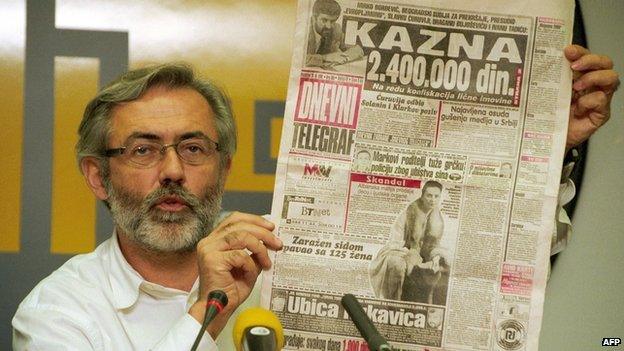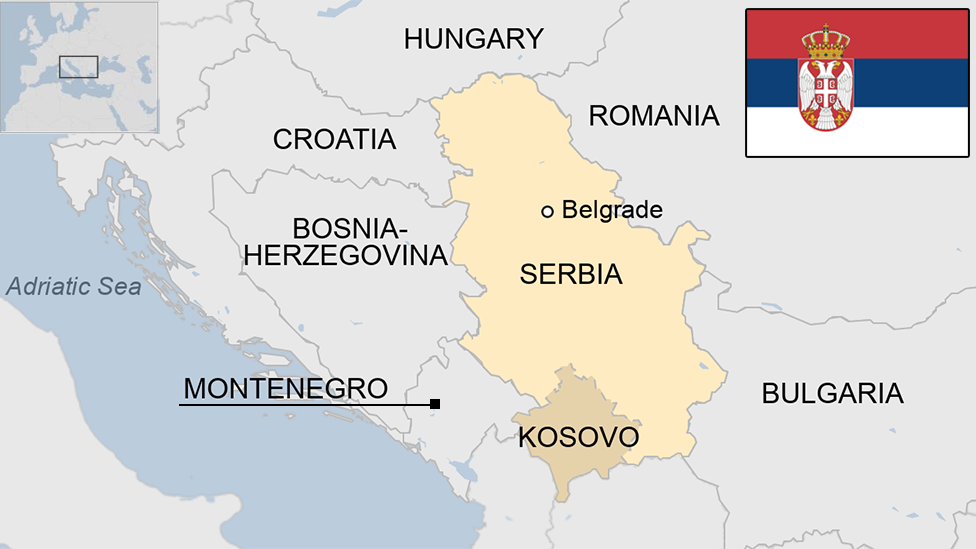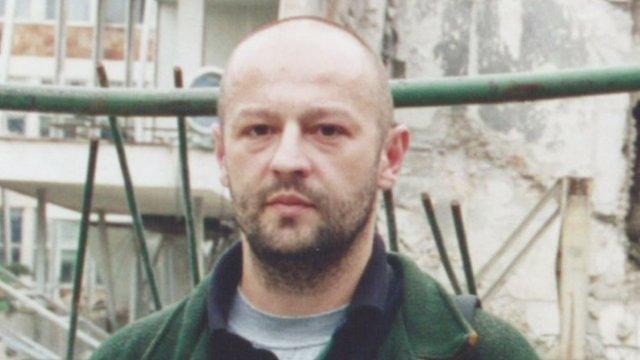Serb ex-spies on trial for 1999 murder of editor Curuvija
- Published

Slavko Curuvija was critical of the power concentrated in the hands of Slobodan Milosevic
Three Serbian former intelligence officers have pleaded not guilty to the 1999 murder of newspaper editor Slavko Curuvija, a critic of ex-leader Slobodan Milosevic.
Ex-secret police chief Radomir Markovic is accused of ordering the killing. The others allegedly carried it out.
The trial opened in Belgrade on Monday, but a fourth defendant is on the run. He is being tried in absentia.
Milosevic died in jail in 2006. In 1999 his wife, Mira, lambasted Curuvija.
The former editor and owner of Dnevni Telegraf and Evropljanin - two leading independent newspapers - was shot dead outside his apartment in Belgrade during Nato's air assault on former Yugoslavia in 1999.
The Nato raids were aimed at halting Serbian violence against ethnic Albanian civilians in Kosovo. Milosevic fomented aggressive Serb nationalism in the 1990s.
Milosevic's wife Mira Markovic was given asylum in Russia after his extradition to the UN tribunal in The Hague in 2001. Milosevic was on trial there, accused of war crimes, when he died in his cell.
Days before Curuvija's death, Mira Markovic had accused the journalist of supporting the Nato bombing.
Curuvija's family believe Milosevic personally ordered his murder.
Landmark case
The accused will face between 30 and 40 years in prison if found guilty.
Besides Radomir Markovic - no relation to Mira - Milan Radonjic and Ratko Romic are in the dock, while Miroslav Kurak is on the run, with an international arrest warrant issued against him.
The Belgrade prosecutor said that the accused had "murdered Curuvija because of his public statements in the country and abroad, and criticism of the holders of political power, but also the possibility that he would influence public opinion".
According to Veran Matic, head of a government commission investigating Milosevic-era crimes, the trial has historical significance because so far none of the murders of journalists during this period has been solved, Serbia's B92 news website reports.
- Published28 January

- Published22 April 2015
